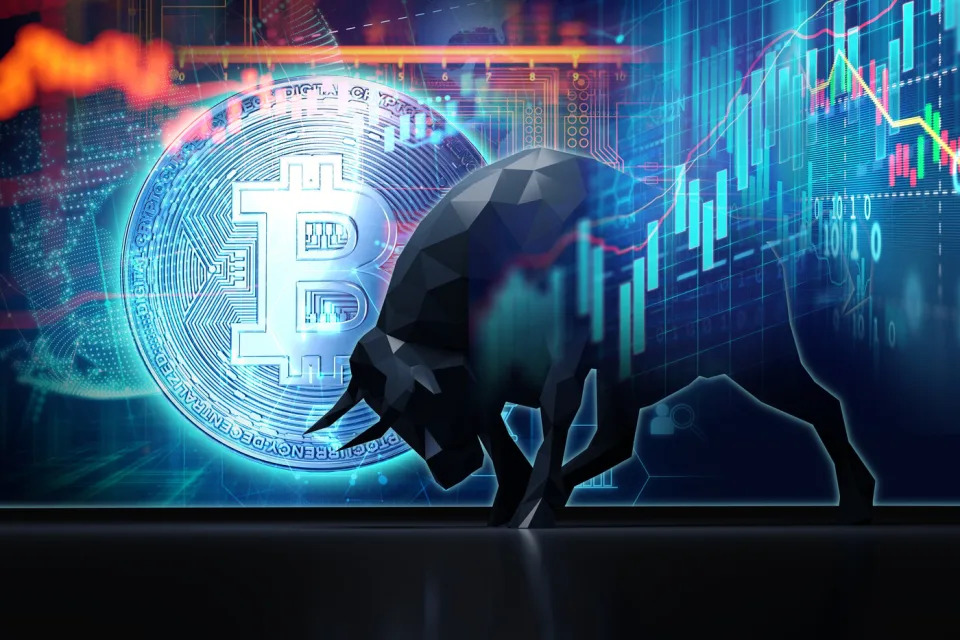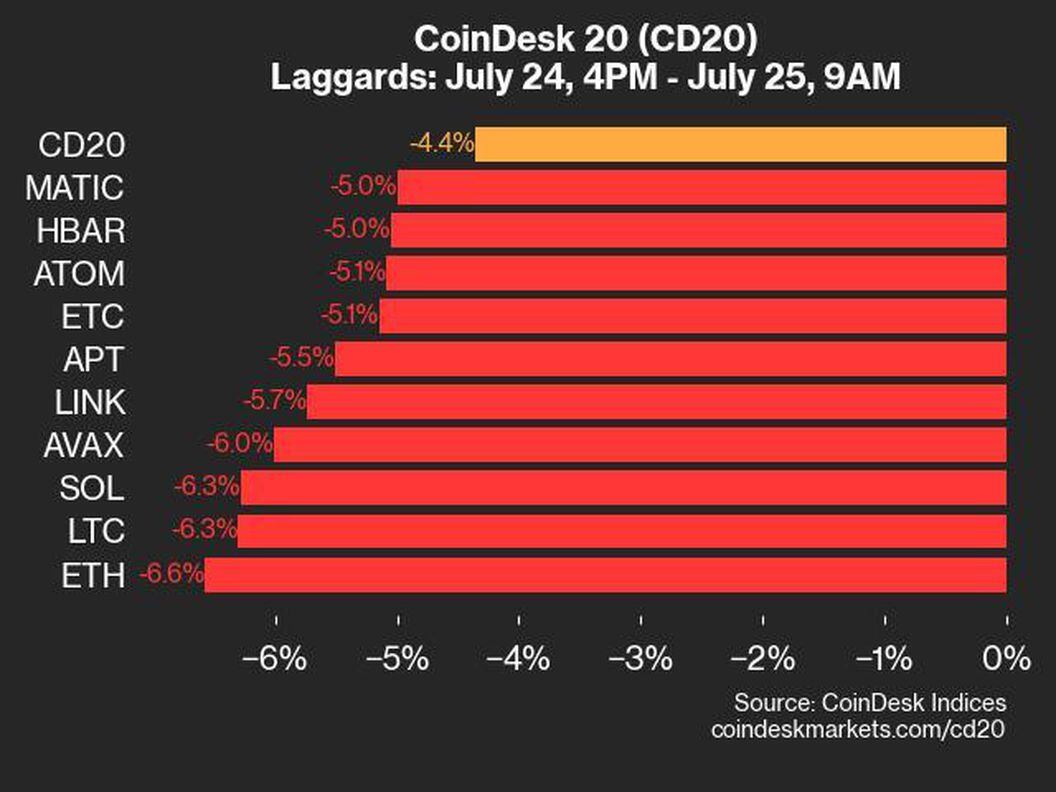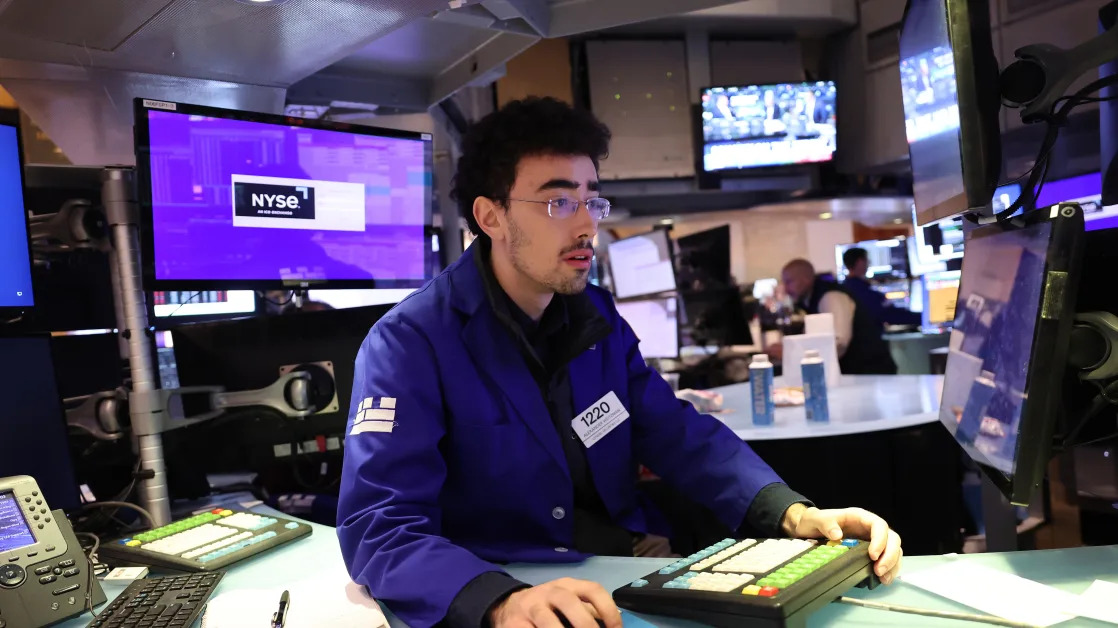The value of all cryptocurrencies in circulation recently hit a new all-time high of $3.8 trillion. Former President Trump's successful bid for reelection on Nov. 5 lit a rocket under the entire crypto market, driving a surge in the world's largest cryptocurrencies and speculative meme tokens.
Investors believe the incoming Trump administration will approach the crypto industry with a lighter regulatory touch, paving the way for new use cases that could create additional value. Trump already nominated pro-crypto businessman Paul Atkins to run the Securities and Exchange Commission (SEC), which was music to the industry's ears (although he must be confirmed by the Senate first).
From Nov. 5 to Dec. 10, XRP (CRYPTO: XRP) has soared 362%, Dogecoin (CRYPTO: DOGE) is up 139%, and Bitcoin (CRYPTO: BTC) has climbed 41%. With a new year right around the corner, which one will be the better buy for investors in 2025?

The case for XRP
The XRP cryptocurrency was created in 2012 by a technology company called Ripple, which built a payment network called RippleNet. This network allows banks and financial institutions to send money around the world in seconds rather than days.
XRP was designed to standardize those payments in an all-digital system. For example, a U.S. bank might send XRP to a German bank, rather than sending American dollars, which would bypass currency-exchange fees and other transaction costs. Partner banks on both ends of the transaction handle the conversions between XRP and fiat currencies.
It's an interesting proposition, but the U.S. Securities and Exchange Commission (SEC) slapped Ripple with a lawsuit in 2020 claiming its XRP token is a financial security (like a stock or a bond), which means the company must operate within a strict regulatory framework. A cryptocurrency like Bitcoin doesn't have this problem because it isn't backed by a company that can issue more supply.
The lawsuit placed a dark cloud over the price of XRP but was partially resolved in August of 2024. Ripple was forced to pay a $125 million fine, but the judge ruled XRP might only be a security under specific circumstances -- like when new tokens are sold to institutional investors, but not when it's traded on public exchanges. That was good news for XRP investors.
The SEC is appealing the decision, but investors are betting this long-running regulatory feud will be squashed completely when Trump's SEC pick takes office, leaving Ripple with complete freedom to operate.
That's why XRP has soared 362% since Nov. 5 and currently trades at $2.31 per token -- but that's still below its record high of $3.40 from 2018, so there could be more upside on the way.
The case for Dogecoin
Tesla CEO Elon Musk put his cash and influence behind the Trump campaign, which may have helped the now president-elect get over the line. What does that have to do with Dogecoin? In 2021, Musk called it his favorite cryptocurrency and regularly promoted it on social media. He even participated in a Dogecoin-themed comedy skit during an appearance on Saturday Night Live ( SNL ).
Despite Dogecoin's strong gain since Nov. 5, its current price of $0.39 per token is still significantly below its all-time high of $0.73. Coincidentally, that record high was set on the night of Musk's SNL appearance on May 8, 2021. Dogecoin plunged by 92% after that because investors realized he had no real strategy to support its value.
But shortly after Trump won the election, he appointed Musk as the head of a new entity called the "Department of Government Efficiency," or DOGE for short. The acronym is a nod to Dogecoin, but there's no suggestion the token will play any role in the department.
In other words, Dogecoin's latest rally looks like a repeat of its 2021 surge, which ended in pain for investors who were late to the party. That doesn't mean it can't move higher in the short term because predicting the end of speculative frenzies is almost impossible, but its ability to create long-term value remains limited.
That shouldn't come as a surprise, considering Dogecoin's two founders created it as a joke in 2013.
The case for Bitcoin
Bitcoin is the world's largest cryptocurrency, with a market capitalization of $1.9 trillion, and accounts for over half of the entire industry's market cap on its own. Even though it has only jumped 41% since Nov. 5, which is far less than XRP or Dogecoin, it set a new record high of over $100,000 per coin just last week.
Bitcoin doesn't have any additional utility, compared to other cryptocurrencies, because it isn't widely accepted as payment for goods and services. However, investors have warmed up to it as a store of value, with many analysts comparing it to a digital version of gold.
Unlike other cryptocurrencies, Bitcoin is making progress with regulators. The SEC approved dozens of crypto-based exchange-traded funds (ETFs) this year, which gives financial advisors and institutional investors a way to buy the coin in a safer, regulated way. Companies that issue Bitcoin ETFs have already experienced collective inflows of more than $100 billion, so there's incredible demand for this method of owning the cryptocurrency.
Some Wall Street analysts have assigned very ambitious price targets to Bitcoin. Cathie Wood's Ark Investment Management thinks it could soar to almost $1.5 million per coin by 2030, based on eight potential factors. Institutional adoption and recognition as digital gold are two of them, but Ark also thinks businesses and governments could store Bitcoin on their balance sheets alongside cash to hedge against economic headwinds like inflation.
The value of all above-ground gold reserves is currently $18.4 trillion. Bitcoin's market cap would have to soar 863% to match that, which translates to a price per coin of around $929,000 (based on the current supply of 19.8 million Bitcoins). If the wider investment community truly adopts Bitcoin as a digital alternative to the shiny yellow metal, that's one price target to aim for.
The verdict
Ripple is an innovative company, but banks don't have to use XRP in order to use RippleNet -- the payment network is also compatible with regular currencies. As a result, XRP won't necessarily become more valuable if RippleNet successfully garners widespread adoption, which means the token might just be a vehicle for speculation, like Dogecoin.
Some companies have submitted ETF applications to the SEC for XRP-based funds, which might get approved during the Trump administration, but since the token still hasn't reclaimed its all-time high from 2018, it's hard to consider it a good store of value.
Even though Bitcoin is still a speculative asset (investors buy it hoping someone will pay a higher price for it in the future), it's becoming accepted as a true store of value because it has consistently climbed to new highs. That positive investor sentiment probably gives it a much better chance to deliver upside both next year and over the long term, compared to XRP or Dogecoin.
Don’t miss this second chance at a potentially lucrative opportunity
Ever feel like you missed the boat in buying the most successful stocks? Then you’ll want to hear this.
On rare occasions, our expert team of analysts issues a “Double Down” stock recommendation for companies that they think are about to pop. If you’re worried you’ve already missed your chance to invest, now is the best time to buy before it’s too late. And the numbers speak for themselves:
Right now, we’re issuing “Double Down” alerts for three incredible companies, and there may not be another chance like this anytime soon.
See 3 “Double Down” stocks »





